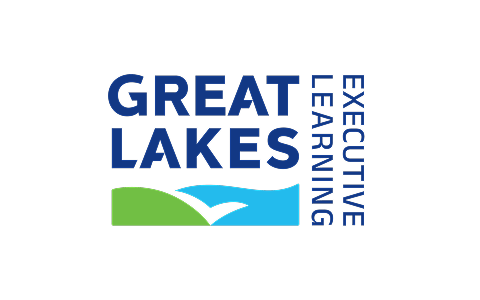Introduction to Insurance
Enroll in the free Introduction to Insurance course learn from basics. Taught by experts on History of Insurance, Indian industry scenario, Categories of insurance products and more. Start today and enhance your knowledge!

Ratings
Level
Learning hours
Learners
Skills you’ll Learn
About this course
In this course, we'll cover the history of insurance, tracing its roots back to ancient times when traders would divide their goods among several ships to minimize the risk of losing everything in one go. We'll explore how the industry has evolved over time, and how it's shaped the way we think about risk and protection. Moving on to the Indian Industry Scenario, we'll look at how insurance has developed in India over the years, and how it's become an essential part of the economy. We'll also take a closer look at the different types of insurance products available, from life insurance to health insurance and everything in between. Speaking of life insurance, we'll delve into its importance and impact on individuals and families. We'll see how it can help provide financial security and peace of mind, and how it can be a crucial tool in planning for the future.
Finally, we'll discuss the latest trends in the Indian insurance industry, from digitization and automation to new products and services that are changing the game. By the end of this course, you'll have a solid understanding of the history, current state, and future direction of the insurance industry.
Course Outline
 UPGRADE
UPGRADE
Recommended university programs
What our learners enjoyed the most
Skill & tools
63% of learners found all the desired skills & tools
Frequently Asked Questions
Will I receive a certificate upon completing this free course?
Is this course free?
What are the prerequisites required to learn this Introduction to Insurance Course?
You do not need any prior knowledge except knowing what Insurance is to learn this Introduction to Insurance Course.
How long does it take to complete this free Introduction to Insurance course?
Introduction to Insurance course is a 1.5 hour long course but it is self-paced. Once you enroll, you can take your own time to complete the course.
Will I have lifetime access to the free course?
Yes, once you enroll in the course, you will have lifetime access to any of the Great Learning Academy’s free courses. You can login and learn whenever you want to.
Introduction to Insurance
Insurance is a form of risk management that has been around for centuries, with the earliest known example of insurance dating back to ancient China in the 3rd century BC. Today, insurance has become a vital part of our lives, providing financial protection against unforeseen events and helping us to manage risks associated with various aspects of life. Insurance is essentially a contract between an individual or entity and an insurance company. The individual or entity (referred to as the insured) pays a premium to the insurance company in exchange for the promise that the company will cover any losses or damages that may occur in the future. The insurance company assumes the risk of loss, and the insured gets the peace of mind that comes with knowing that they are protected against potential losses.
There are many types of insurance available today, ranging from basic health insurance to more specialized forms such as life insurance, car insurance, and property insurance. Each type of insurance is designed to provide protection against specific types of risks, and each policy will have its own set of terms and conditions. One of the most common types of insurance is health insurance, which provides coverage for medical expenses incurred by the insured. Health insurance policies can vary widely in terms of coverage and cost, and they can be obtained through employers, private insurance companies, or government programs such as Medicare or Medicaid.
Another common type of insurance is car insurance, which provides coverage for damages or injuries that may occur as a result of a car accident. Car insurance policies can also include coverage for theft, vandalism, and other types of damage. Property insurance is another type of insurance that is designed to protect property owners against losses related to their property. This can include coverage for damage caused by fire, theft, or natural disasters such as hurricanes or earthquakes. Life insurance is a form of insurance that provides financial protection for the insured's loved ones in the event of their death. Life insurance policies can include coverage for a specific period of time or for the insured's entire life, and they can be used to cover expenses such as funeral costs, outstanding debts, and living expenses for surviving family members.
One of the key benefits of insurance is that it helps to spread risk across a larger pool of people. By pooling the premiums paid by many individuals, insurance companies are able to pay out claims when they occur without bankrupting themselves. This allows individuals and businesses to transfer the risk of potential losses to the insurance company, giving them greater financial security and peace of mind.
However, insurance can also be a complex and confusing topic, with many different types of policies, terms, and conditions to consider. When choosing an insurance policy, it is important to carefully review the terms and conditions to ensure that the policy meets your specific needs and provides adequate coverage. It is also important to shop around and compare policies from different insurance providers to ensure that you are getting the best value for your premium payments. In addition to providing financial protection, insurance also plays an important role in the economy. Insurance companies invest the premiums they receive in a variety of assets, such as stocks, bonds, and real estate. This helps to stimulate economic growth by providing capital to businesses and supporting the creation of new jobs. Insurance also helps to mitigate the economic impact of disasters and other unforeseen events. For example, in the aftermath of a natural disaster such as a hurricane or earthquake, insurance companies can provide financial assistance to individuals and businesses that have suffered losses, helping to speed up the recovery process and reduce the overall economic impact of the disaster.
In conclusion, insurance is an essential component of modern life, providing financial protection and peace of mind against unforeseen events and risks. With many different types of insurance available, it is important to carefully consider your specific needs and shop around to find the best policy for your individual situation.




































